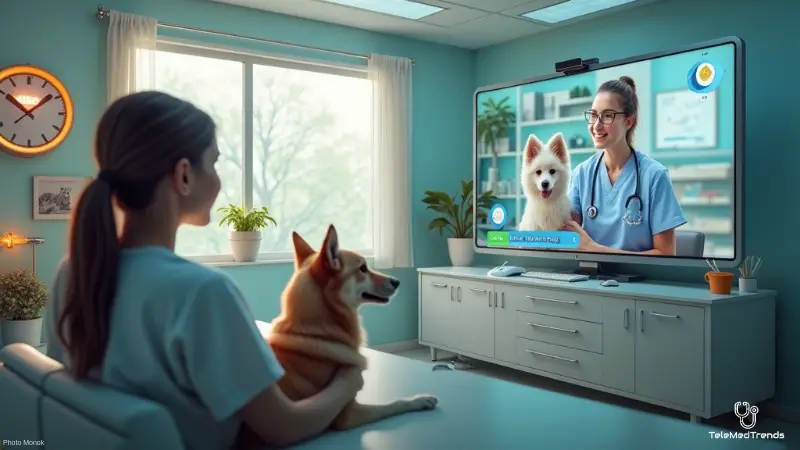The global veterinary telehealth market is poised to experience significant expansion in the coming years, driven by increasing demand for convenient and accessible pet care solutions.
According to recent projections, the market value is expected to reach USD 970 million by 2034, with a compound annual growth rate (CAGR) of 17.7%.
As pet owners increasingly explore alternatives to traditional veterinary appointments, the demand for remote consultations continues to rise.
Advancements in telecommunication technologies now enable veterinarians to offer virtual consultations, significantly broadening their reach and accessibility.
This shift toward remote care is proving advantageous for pet owners while simultaneously opening up new opportunities for veterinary professionals.
Key Takeaways
The global veterinary telehealth market is expected to experience significant expansion with a 17.7% growth rate by 2034.
- Pet owners are increasingly seeking convenient and accessible pet care solutions, driving demand for remote consultations.
- Advancements in telecommunication technologies enable veterinarians to offer virtual consultations, broadening their reach and accessibility.
- Leading companies like Televet and Zoetis are innovating through strategic partnerships and cutting-edge solutions, shaping the future of veterinary telehealth.
The future of virtual care
Online telehealth services are poised to drive market growth, achieving an anticipated CAGR of 17.5% by 2034.
The United Kingdom is forecasted to reach a CAGR of 19% during the same period, while China is set to witness notable expansion with a projected CAGR of 18.4%.
Meanwhile, tele-consulting services are expected to grow at a CAGR of 17.3%, fueled by the rising acceptance of virtual consultations.
Market competition and innovations in virtual care
Leading companies like Televet and Zoetis are broadening their influence through strategic partnerships and innovative advancements.
The competitive landscape is further energized by emerging startups offering user-friendly platforms that enhance accessibility and challenge established players.
Companies such as Airvet and VitusVet are making strides by focusing on cutting-edge solutions and forming strategic alliances to strengthen their presence in the industry.
Televet recently launched its telehealth platform across educational institutions offering veterinary programs, while Zoetis joined forces with Vet-AI and Video With My Vet to facilitate virtual consultations via smartphones.
These advancements underscore the increasing significance of telemedicine in the veterinary field. As the sector evolves, ongoing breakthroughs and expansions in remote pet care services are anticipated.






